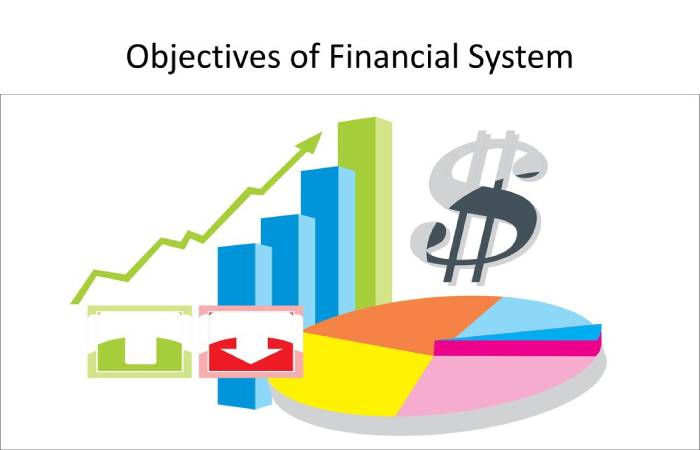Table of Contents
What is the Financial System?
The financial system is the set of institutions (financial and government entities), media (financial assets), and markets that make it possible for the savings (idle money) of some economic agents to go to the hands of credit applicants.
I was channeling savings and investment to ensure that it allocates in the most efficient way possible. And, as a consequence, there is economic growth.
Main Objective of the Financial System

- Therefore, the financial system mediates between those who have excess money and want to lend it and those who need financing.
- In other words, what the financial system generates are crediting.
- A critical actor within the financial system is the banks, which act as intermediaries between those who have excess money and those who want it.
- Also, they facilitate the conditions for both parties.
- They adjust the money they receive and lend in time and quantity, depending on the economic agent’s needs with excess cash and the money applicant.
- Direct borrowing by the savings provider and the borrower would be impossible because their money needs would probably not be the same in terms of quantity and time.
- From the perspective of those who have excess money, it would be an investment since this bank deposit would generate a return.
- From the perspective of those who want financing, it would be a loan for a specific term, for which they will have to pay interest in addition to returning the principal.
Importance of the Financial System
- Therefore, the financial system is critical within the economy. It generates more income for those who lend and encourages companies’ creation, something essential for the economy.
- There are different instruments to carry out this relationship: bank products such as accounts, deposits, etc .; investment crops such as stocks, mutual funds, bonds, etc .; pension plans. And insurance products such as life insurance.
- There are people more interested in finance and turn to the markets to solve their financial needs. However, many other people see banks as an economical solution to their needs.
The Function of the Financial System

It is one of the most significant essential lists of modern society. The phenomenon of inequity in the delivery of capital or funds exists in every economic system. There are parts or people with surplus funds, while other places or people are facing a deficit.
A financial system functions as an intermediate and facilitates funds from surplus areas to deficiency areas. It comprises numerous institutions, markets, regulations and laws, practices, money managers, analysts, transactions, and claims & liabilities.
The financial system aids determine both the cost and the volume of credit. This system can affect an increase in funds’ price, thus adversely affecting the economy’s consumption, production, employment, and growth.
Vice-versa, lowering the cost of credit can have a positive effect and enhance all the above factors. It has an impact on the necessary existence of an economy and its citizens.
1. The Savings Function
- As already stated, public savings find their way into the pointers of those in production through the financial system. Financial claims issues in the money and capital markets, which promise future income flows.
- The funds, in the hands of the creators, resulting in better goods and services and an increase in society’s living standards.
- When savings flow decline, however, the growth of asset and living standards begins to fall.
2. Liquidity Function
- Money in the form of deposits offers the least risk of all financial instruments.
- But its value is mostly eroded by inflation. That is why one always favors storing funds in financial tools like stocks, bonds, debentures, etc.
- However, in such investments, (i), a better level of danger is involved, (ii) and the degree of liquidity (i.e., conversion of the claims into money) is less. The financial markets offer the investor the opportunity to liquidate the investments.
3. Payment Function
- The financial systems suggest a very convenient style of payment for properties and services.
- The check system, credit card systems, etc., are the calmest income methods in the economy; they also drastically decrease transactions’ cost and time.
4. Risk Function
- The financial markets protect life, health, and income risks. These accomplish through the sale of life, health, and property insurance policies.
- Overall, they provide immense opportunities for the saver to hedge himself/herself against or decrease the possible danger involved in various instruments.
5. Policy Function
- Most governments intervene in the financial system to influence macroeconomic variables like interest rates or inflation.
- For example, the federal bank or a central bank does indulge in several cuts in CRR and try to force the interest rates down and increase the availability of credit-at cheaper rates to the corporates.
Components of Financial System
A financial system refers to a system that enables the transfer of money between investors and borrowers. An economic system could define at an international, regional, or organization level. The term “system” in “Financial System” indicates a group of the compound and closely linked institutions, agents, procedures, markets, transactions, claims, and liabilities within an economy.
Five Basic Components of Financial System:
1. Financial Markets
A financial market is a place where financial assets are created or transferred. It can broadly categorize into money markets and capital markets. The money market handles short-term financial investments (less than a year), whereas capital markets take care of those financial assets with a maturity period of more than a year. The essential functions are:
- Assist in the creation and allocation of credit and liquidity.
- Serve as mediators for mobilization of savings.
- Help achieve balanced economic growth.
- Offer financial convenience.
One more classification is probable: primary markets and secondary markets. Primary markets handle the new issue of securities. In contrast, secondary markets take care of securities that are presently obtainable in the stock market.
Financial markets catch investors’ attention and make it possible for companies to finance their operations and attain growth.
Money markets make it possible for businesses to improve access to funds on a short term basis, while capital markets allow firms to gain long-term funding to aid growth.
Without financial markets, borrowers would have problems finding lenders. Intermediaries like banks assist in this procedure. Banks take deposits from investors and lend money from this pool of deposited money to people who need a loan. Banks commonly provide cash in the form of loans.
2. Financial Instruments
- It is a crucial component of the financial system. The products traded in the financial market are financial assets, securities, or other financial instruments.
- There is a wide range of safeties in the markets since investors and credit seekers’ needs are different.
- They indicate a claim on the payment of principal down the road or cost of a regular quantity utilizing interest or dividend. Equity shares, debenture bonds, bonds, etc., are nearly examples.
3. Financial Services
- Financial services contain facilities provided by Asset Management and Liability Management Companies. They assistance to get the necessary funds and also make sure that they efficiently deploy.
- And also, they assist in determining the financing combination and extend their professional services up to the servicing of lenders.
- They assist with the buying and selling of securities, obtaining credit lines and investments, making and letting payments and settlements, and managing risk exposures in the financial markets.
- The leasing companies include mutual fund houses, merchant bankers, portfolio managers, bill discounting, and acceptance houses.
- The financial services sector offers some professional facilities like credit rating, venture capital financing, mutual funds, merchant banking, depository services, book building, etc.
- Financial institutions and financial markets help in the working of the financial system utilizing financial instruments.
- To be able to transmit out the jobs given, they want several services of economic nature. Therefore, Financial services consider the 4th major component of the financial system.
4. Money
- Money is understood to be anything that accepts payment of products and services or the refund of debt. It is a medium of exchange and acts as a stock of value.
Conclusion
Modern-day economies require vast sums of money for investment in capital assets (land, types of equipment, factory, etc.), which then use for providing goods and services. The funds required are so huge that a single government/firm can’t meet the condition.
By selling financial rights like stocks, bonds, etc., the necessary funds can quickly raise from various investors. And also, the business firm/government is issuing such a monetary request to return the borrowed coffers from expected future inflows.
Indeed, we see that the financial markets within the financial system have made possible the exchange of current income for future income and transformation of savings into investments so that production and revenue keep growing.

